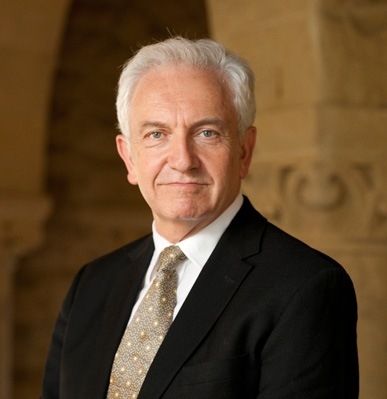You have /5 articles left.
Sign up for a free account or log in.

Russell A. Berman
Stanford University
Criticizing humanities doctoral programs is easy. They take too long, they continue to emphasize training for tenure-track faculty positions in an era when such positions are scarce, they encourage the book-model of dissertation at a time when books are hard to publish, even full funding isn’t always “full” – the list goes on.
Solving the Ph.D. predicament is much harder, but that’s what the Modern Language Association is attempting to do, or at least start to do, in a new report.
The “Report of the MLA Task Force on Doctoral Study in Modern Literature,” out today, culminates two formal years of work but reflects discussions dating to 2008 and earlier. Its findings won’t surprise those who have followed the dialogue, but the report marks the first time the MLA has weighed in so formally in favor of Ph.D. reform.
A -- if not the -- key recommendation is for departments to design programs that students can complete in five years, with some wiggle room.
Discussion of the Report
"This Week," Inside Higher Ed's new weekly newscast, will feature analysis of the report on Friday with Rosemary Feal, executive director of the Modern Language Association. Stream or download it here on Friday. Or sign up here now to receive each week's newscast via email.
“In the light of persistent criticism from within the academy and from a larger public, the legitimacy of doctoral study needs reformulation if we expect to meet the challenges and opportunities of the moment,” the report says. “We are faced with an unsustainable reality: a median time to degree of around nine years for language and literature doctoral recipients and a long-term academic job market that provides tenure-track employment for only around [60] percent of doctorate recipients.”
The report largely leaves curricular redesign – and how to achieve that five-year timeline – up to departments. But it urges programs to consider significant changes in the pacing and quantity of coursework; increasing student competencies beyond literary language and analysis; adding modes of evaluation; and altering the nature of the dissertation prospectus in the process.
“Departments should rewrite requirements, abandoning expectations of comprehensive coverage to facilitate alternative modes of knowledge, including interdisciplinary inquiry,” the report says. “Instead of placing primary emphasis on traditional literary-historical coverage, departments should encourage new forms of scholarship and require new models of preparation.”
While promoting radical change, the report explicitly rejects the idea of shrinking the size of Ph.D. programs, saying attempts to tie admissions rates to the job market would inevitably decrease diversity among graduate students. "Doctoral education is not exclusively for the production of future tenure-track faculty members," the report says. "Reducing cohort size is tantamount to reducing accessibility." It continues: "The task force's response to the contraction in the academic job market is not a retreat designed to preserve a traditional paradigm. Instead we argue for transforming the paradigm by broadening professional horizons in the interest of preserving accessibility to a humanities Ph.D."
The task force also says institutions should provide graduate students with funding for the duration of the five-year program.
Russell A. Berman, professor of German studies and comparative literature at Stanford University and past president of the MLA, chaired the task force. In an interview, he said the idea that a degree should cover a broad range of time periods and geographies, or "coverage" – which historically has proved a tricky issue – “implies a particular commitment to a national literary-historical paradigm, and for many students that does not accurately describe their intellectual agenda, nor does it sufficiently predict their career trajectories.”
Programs would do better by their students to focus on “professional formation,” he said, and not just for academe – another key recommendation from the task force. The report says programs should help students build networks and find mentors across the university and outside its borders, including in professional organizations.
“In other sectors of the university, and higher education, it’s standard practice for Ph.D. recipients to go into government, or the nonprofit private sector – it’s only in the humanities where we have a prudish hesitation about these career paths,” Berman said. “We do our students a disservice when we limit their career horizons.”
At the same time it encourages shorter timelines and narrowed coverage, the report encourages an increased focus on pedagogy. It says scholar-teachers need more training, and that teaching is undervalued at the research university and across higher education. This reflects the reality that while most Ph.D.s are earned at research universities, those who receive them -- if they get faculty jobs -- are more likely to be at teaching-oriented institutions.
The report also calls for more technological training, and says students should be encouraged to test and develop new tools and techniques for the study of literature and languages.
“Programs should therefore link technology training to student research questions, supporting this training as they would language learning or archival research and partnering where appropriate outside the department to match students with relevant mentors or practicum experiences,” the report says. “Future undergraduates will bring new technological expectations and levels of social media fluency to the classroom, and their teachers – today’s doctoral students – must be prepared to meet them with versatility and confidence.”
Dissertation “reimagining” is another key topic. The task force says an extended research project “is and should remain the defining feature of doctoral education and a key contribution to the life of the scholarly community in our fields and in the world.” But it says nontraditional dissertations – despite faculty members’ concerns that they’ll put students at a disadvantage on the job market – are a “pivot point” in graduate education reform. Instead of book-length dissertations as “exclusive capstones,” the report says, programs should consider such forms as essays on a common theme; web-based projects that give evidence of extensive research; translations with accompanying criticism; public humanities projects; and treatment of texts in terms of their pedagogical value.
Berman said that the traditional dissertation process, coupled with a lack of writing and research mentoring, is one of the reasons that time-to-degree has crept up over time. Another reason, he said, is that Ph.D. programs have added requirement after requirement, without eliminating or rethinking older ones.
The professor said changing the status quo is going to take "hard work," leadership and commitment from faculty, professional associations and foundations. But, he said, “A lot of this evolution is under way.”
As evidence, Berman pointed to the report’s appendix, which profiles about a dozen departments that already have updated their requirements and shortened their timelines. Vanderbilt University’s English department, for example, recently restructured its comprehensive exams to enable students to finish those requirements, along with their dissertation proposals, by the end of their third year. That affords students two full years of writing and researching (Vanderbilt fully funds its students for five years).
Two years into the new structure, the report says, more students are completing their degrees in five years and student dissertations are more developed.
Via email, Mark Wollaeger, professor and graduate director of English at Vanderbilt, said the changes encountered little resistance from faculty or staff. Wollaeger said that Vanderbilt’s model of integrating comprehensive exams with prospectus writing “is certainly exportable, as is the moving up of comprehensive exams.”
But he noted that the new timelines presents a “trade-off” between the “pace of the program and the ability of students to get published before going on the [job] market.”
Rosemary Feal, executive director of the MLA, said one of the most encouraging aspects of the report is that many recommendations can easily be enacted. For example, she said, MLA will help identify mentors in its ranks, across professional fields. That's in response to the task force's call for professional organizations to link graduate students with employed Ph.D.s inside and outside academe. Other recommendations are “attitudinal,” rather than structural, she said, such as the task force’s call for departments to be more encouraging of alternative academic careers.
But others found the report more problematic.
Alicia Peaker, who recently earned her Ph.D. in English at Northeastern University after nine years, and who blogs for Inside Higher Ed about graduate student issues as development editor at GradHacker, said via email that reduced time-to-degree would benefit students as well as departments. And she praised the report’s focus on networking inside and outside the academy and validating alternative academic careers.
“But I'm left wondering, why five years?” she said. “Given that current time-to-completion is just shy of a decade, halving the time-to-completion seems rash rather than ambitious. Even if five years is the ultimate golden number for a Ph.D. (it sure seems to be popular in this debate), it makes more sense in terms of resources, feasibility, and morale to reduce time-to-completion more gradually.”
The five-year timeline typically assumes that students have full-year funding, she added, which isn't always the case. Peaker also noted that faculty mentoring plays an outsized role in completing the accelerated timeline – despite the fact that professors already are “overstretched” in serving graduate student committees.
“Overall, what graduate students need is not more or less time -- it's more support,” she said. “If departments supported graduate students with living wages (throughout the year), health insurance, internship and job placement, effective faculty mentorship, and professional training, then time-to-completion would almost certainly be reduced. To put this differently, concern for quality doctoral education has somehow shifted to be a concern about chronology. This seems to me to be backwards.”
Ervin Malakaj, immediate past president of the MLA Graduate Student Caucus and a Ph.D. candidate in Germanic languages and literature at Washington University in St. Louis, also noted that faculty attitudes about Ph.D. reform may not be that easily changed. While many programs are actively encouraging their students to diversify their portfolios to prepare for a variety of possible careers, he said, "this sort of engagement is as often frowned upon as it is encouraged because many faculty do not believe in the benefits that such engagement could bring."
So while it's "certainly possible" to revise the Ph.D. process, Malakaj said, "the lack of cooperation and agreement between units on campus are hurdles that many programs fail to overcome, which makes the urgent need to reform more urgent and more difficult to implement."









